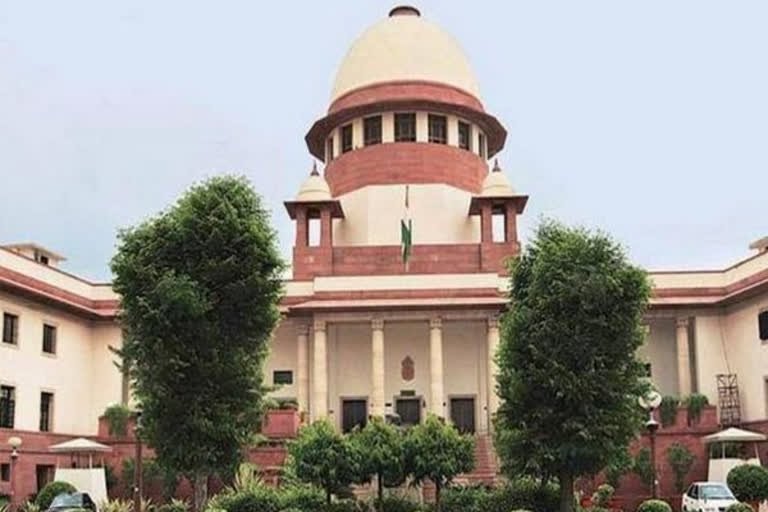New Delhi: The Supreme Court on Monday delivered a split judgment on the issue whether a person who publishes the identify of a child victim of sexual abuse can be prosecuted in the absence of a magistrate's order, against the backdrop that it is a non-cognisable offence. The split verdict was delivered by a bench comprising Justices Indira Banerjee and J.K. Maheshwari.
Justice Banerjee said: "Disclosure of the identity of a child who is a victim of sexual offences or who is in conflict with the law is in fundamental breach of the right of the child to dignity, the right not to be embarrassed." "The right of a child to dignity not only requires that the child be protected from offences of sexual assault, sexual harassment and pornography but also requires that the dignity of a child be safeguarded," she added. Justice Maheshwari said the orders taking cognisance and rejecting the application for discharge are not in accordance with law. "The procedure of Section 155(2) is required to be followed in an offence of POCSO (Protection of Children from Sexual Offences) Act under Section 23 which is non-cognisable and the Special Court is required to look into the procedure followed in the investigation," he said.
Also read: Father, hubby booked under POCSO for forcing minor into marriage
The split verdict came on an appeal filed by Gangadhar Narayan Nayak alias Gangadhar Hiregutti, editor of newspaper "Karavali Munjavu", challenging the Karnataka High Court's September 17, 2021 order, dismissing his plea for discharge for the offence of disclosing identity of a 16-year-old victim.Senior advocate Devdutt Kamat and advocate Nishanth Patil, representing the petitioner, contended Section 23 of the POCSO Act, which prohibits publishing the name of the victim, was a non-cognisable offence. Counsel argued that this offence cannot be investigated without an order from the magistrate as mandated under Section 155 of the Criminal Procedure Code.
Dismissing the appeal, Justice Banerjee said: "I am unable to accept the argument of the appellant that the proceedings were vitiated and liable to be quashed or the appellant was liable to be discharged without trial, only because of want of prior permission of the jurisdictional Magistrate to investigate into the alleged offence. "She added that in the society, victims of sexual offence are, more often than not, treated as the abettor, if not perpetrator of the crime, even though the victim may be absolutely innocent.
"Instead of empathising with the victim, people start finding fault with the victim. The victim is ridiculed, defamed, gossiped about, and even ostracised," said Justice Banerjee. Justice Maheshwari said: "In my considered opinion, the order taking cognizance and to pass consequential order rejecting the application for discharge is not in accordance with law." The matter will now be placed before Chief Justice N.V. Ramana for setting up a larger bench to decide the issue.
IANS



